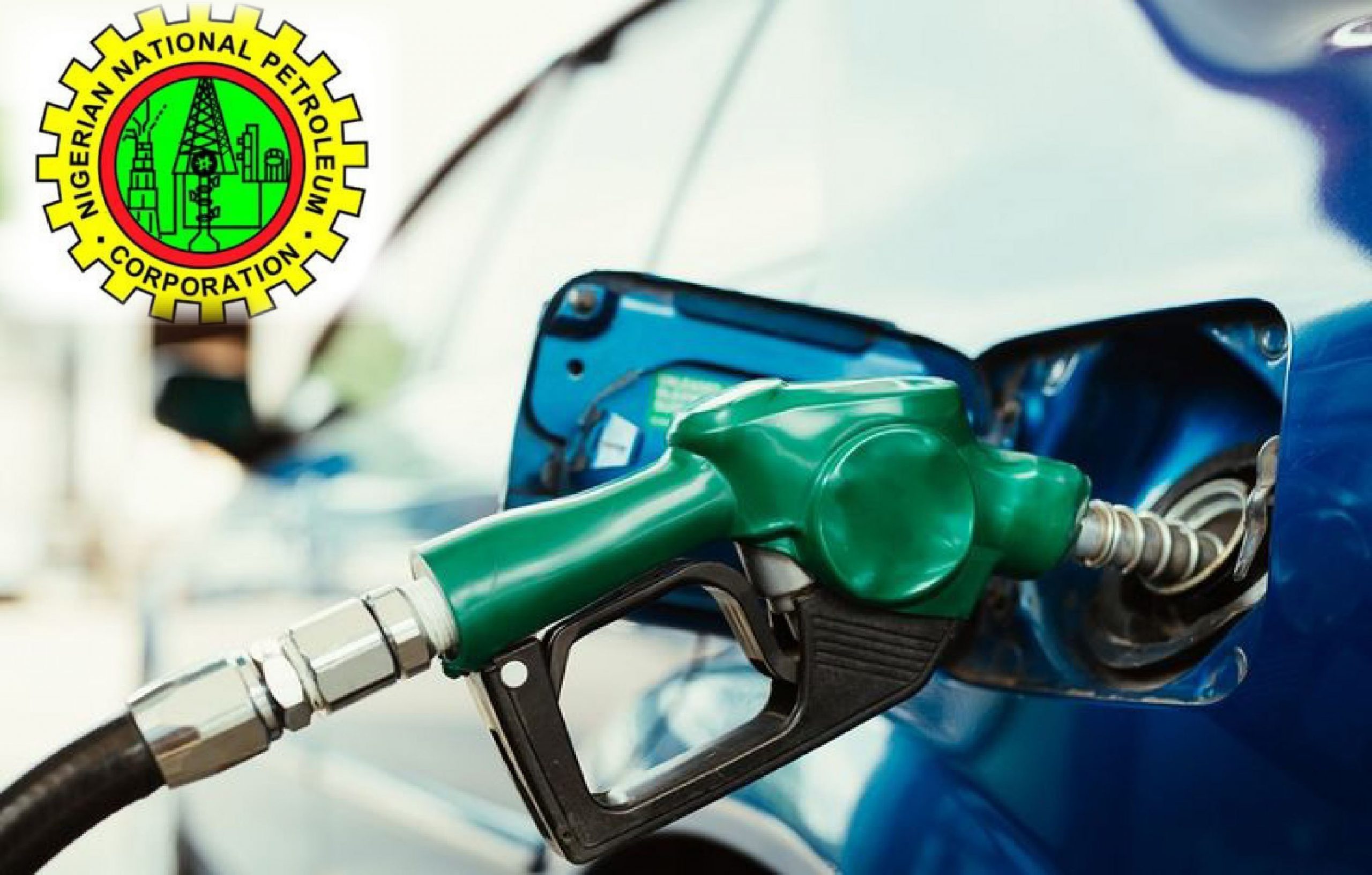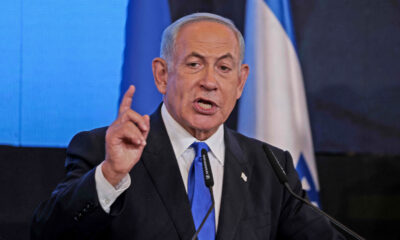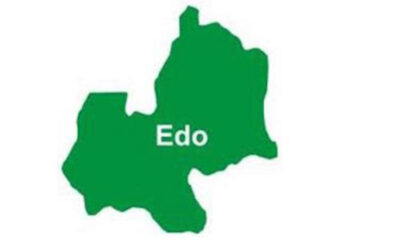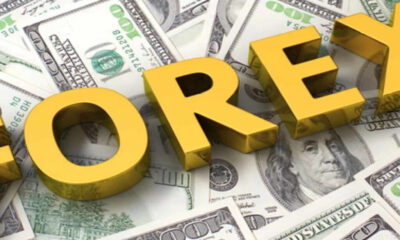Consequently, the margin between the parallel market and NAFEM rates narrowed to N1.57 per dollar from N55.79 per dollar on Monday.
Business
Naira appreciates by 5.22% as intra-day high records N1778/$1

Naira appreciates by 5.22% as intra-day high records N1778/$1
The Naira experienced a notable appreciation against the US dollar on February 26, 2024 as official exchange rate strengthened by 5.22% to N1582.94/$1.
However, the Naira experienced heightened demand pressure, resulting in an intra-day high of N1,778 against the dollar.
This increase exacerbated the ongoing depreciation trend of Nigeria’s currency, highlighting the volatility and challenges faced in the foreign exchange market.
Data from the Nigerian Autonomous Foreign Exchange Market (NAFEM), the official platform for foreign exchange trading, revealed a significant appreciation of the domestic currency by 5.22%, with the Naira concluding the day at N1,582.94 per dollar.
This represents an N82.56 drop or a 5.22% increase in the local currency compared to the N1,665.5 closed on Friday.
The intraday high recorded a record high of N1778/$1, while the intraday low was N1300/$1, representing a wide spread of N478/$1.
According to data obtained from the official NAFEM window, forex turnover at the close of the trading was $154.16 million, representing a 1.47% increase compared to the previous day.
The Naira also appreciated against dollar in the parallel forex market, where forex is unofficially traded, with the exchange rate quoted at N1,650/$1, reflecting a 6.06% increase from the N1,750 rate it closed at the previous day.
READ ALSO:
- Lawmakers’ salaries too small for job responsibilities -Deputy Speaker
- Stampede, deaths: Customs suspends sales of seized edibles
- Tinubu orders creation of youth unemployment benefits
The Great British Pound (GBP) stood at £1/N2100, an increase from £1/N2,260 recorded the previous day, this marks a notable increase of 7.62% compared to the rate recorded the previous day. Additionally, the Naira appreciated against the Euro by 5.95%, closing at N1850/EUR1 compared to N1960/EUR1 reported the previous day.
In the cryptocurrency market where forex is sold using stablecoins, the Naira also settled at N1,637.30/$1.
Newstrends reports the Central Bank of Nigeria (CBN) plans to introduce stringent measures on the purchase of foreign currencies through Bureau De Change (BDC) operators, with a specific focus on transactions related to overseas education and medical expenses.
As part of the apex bank’s revised regulatory guidelines for BDCs in Nigeria, there will be a cap on foreign currency purchases for school fees at $10,000 per customer annually.
This process requires the transaction to be conducted through the BDC’s domiciliary account with a Nigerian bank, ensuring direct payment to the educational institution.
The proposed guidelines read, “BDCs may sell foreign currency up to the equivalent of USD10,000 to a customer for school fee once a year. Such fee, which shall be transferred from the BDC’s domiciliary account with a Nigerian bank, shall be paid directly to the school.”
It also stipulates that such transactions must be accompanied by a set of documents: a duly filled out e-Form A, proof of admission or course registration, the educational institution’s bill or invoice, and, for postgraduate studies, a copy of the undergraduate degree certificate or an officially verified statement of results.
Naira appreciates by 5.22% as intra-day high records N1778/$1
Business
Naira trades at N1,415/$ on parallel market

Naira trades at N1,415/$ on parallel market
The Naira yesterday depreciated to N1,415 per dollar in the parallel market, from N1,410 per dollar on Monday.
Similarly, the Naira depreciated in the Nigerian Foreign Exchange Market, NAFEM, to N1,416.57 per dollar.
READ ALSO:
- Foreigners now visit Nigeria for plastic surgery, others – Minister
- Father of 12 found dead in Bayelsa brothel after sexual escapade
- Man bags life imprisonment for raping 8-year-old girl in C’River
Data from FMDQ showed that the indicative exchange rate for NAFEM fell to N1,416.57 per dollar from N1,354.21 per dollar on Monday, indicating N62.36 depreciation for the naira.
Business
CBN extends suspension of cash deposit charges by bank customers

CBN extends suspension of cash deposit charges by bank customers
The Central Bank of Nigeria (CBN) has directed commercial banks to extend suspension of charges on cash deposit until September 30 this year.
This directive was conveyed through a circular dated May 6, signed by Adetona Adedeji, the Director of Banking Supervision at the apex bank.
The banks had reintroduced fees for deposits exceeding N500,000 for individuals and corporate account holders on May 1.
Following the banks’ decision, individuals were set to incur a two per cent charge on deposits exceeding N500,000, while corporate account holders faced the same levy on deposits surpassing N3 million.
The new circular read, “Please refer to our letter dated December 11, 2023, referenced BSD/DIR/PUB/LAB/016/023 on the above subject, suspending processing charges imposed on cash deposits above N500,000 for individuals and N3,000,000 for corporates as contained in the ‘Guide to Charges by Banks, Other Financial Institutions and Non-Bank Financial Institutions’ issued on December 20, 2019.
“The Central Bank of Nigeria hereby extends the suspension of the processing fees of two per cent and three per cent previously charged on all cash deposits above these thresholds until September 30, 2024.”
Business
Fuel: Independent marketers introduce new pump price

Fuel: Independent marketers introduce new pump price
New reports indicate a surge in fuel pump prices across the nation, with both major and independent marketers adjusting their rates.
Investigations conducted in Abuja and Lagos reveal a significant disparity in petrol prices between stations owned by major and independent marketers.
Major marketers are keeping their prices relatively steady, whereas independent operators have increased their rates by 20 to 30%.
READ ALSO:
- 33 states face flooding risk, NEMA warns
- Diego Maradona’s golden ball trophy for auction in Paris
- JUST-IN: Tinubu returns to Nigeria after Netherlands, Saudi trips
Presently, major marketers are vending at an average of ₦605 per litre, while independent marketers are setting prices at around ₦730 per litre.
Independent marketers attribute the price hike to a breakdown in the system of the Nigerian National Petroleum Company Limited (NNPCL), pointing to advantageous Business-to-Business transactions benefiting major marketers.
They clarify that independent marketers no longer have direct access to imported petroleum products at depot prices.
Further investigations indicate that while petrol is available at stations throughout Lagos, prices have not decreased.
A motorist, Olatunde, disclosed purchasing petrol for ₦850 per litre at a station along the Iju-Ishaga area of Lagos, despite the absence of queues. He noted this as a significant increase compared to the previous ₦630 per litre.
Fuel: Independent marketers introduce new pump price
-

 International2 days ago
International2 days agoNetanyahu rubbishes Hamas ceasefire proposal
-

 Politics2 days ago
Politics2 days agoAbia deputy gov candidate, lawmaker dump PDP
-

 News3 days ago
News3 days agoFubara: I have moved on with governance despite political pressure
-

 News2 days ago
News2 days agoNigerian varsity VC suspended over alleged gross misconduct
-

 Politics3 days ago
Politics3 days agoEdo 2024: Muslims demand fair representation in govt
-

 metro2 days ago
metro2 days agoThree siblings attack school teacher for flogging brother in Port Harcourt
-

 metro3 days ago
metro3 days agoMan confesses killing cousin, friend, body parts sold to ritualists
-

 metro22 hours ago
metro22 hours ago33 states face flooding risk, NEMA warns




















